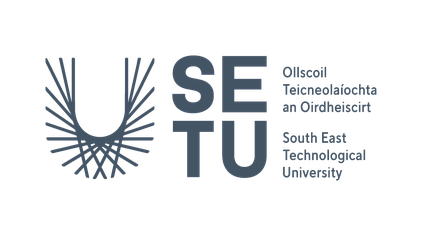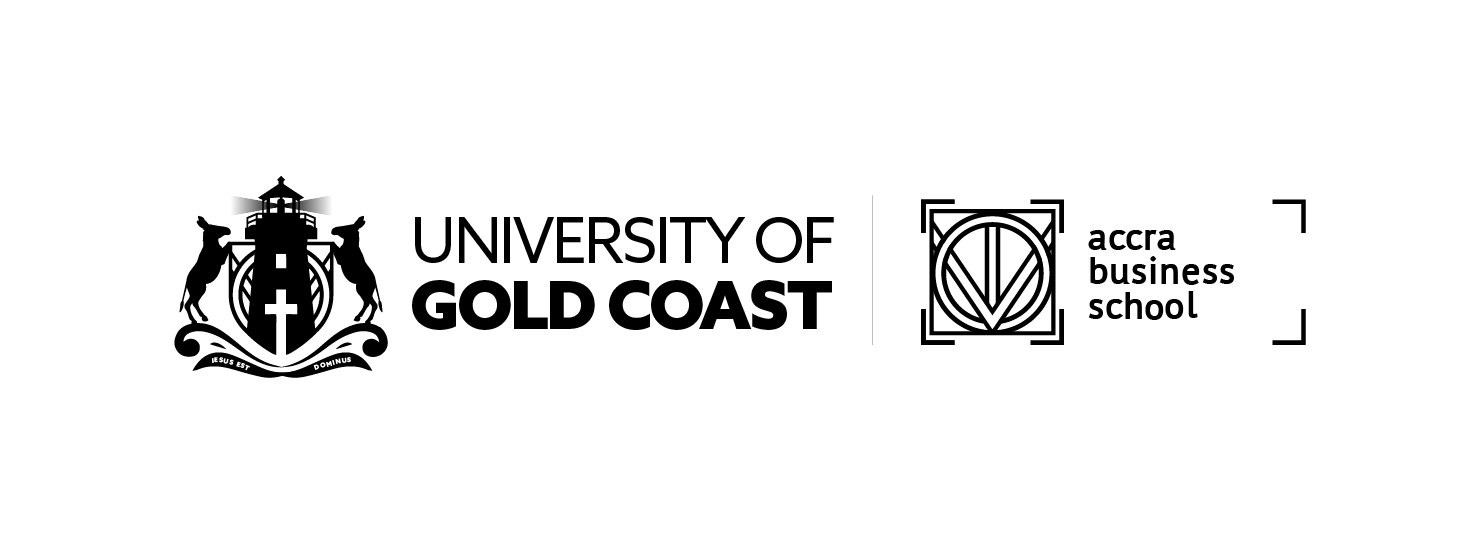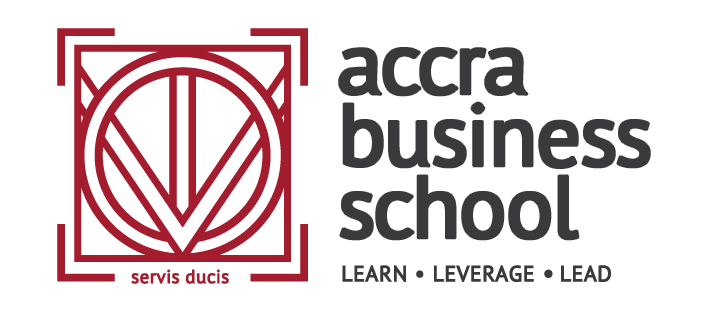INFORMATION TECHNOLOGY PROGRAMMES
Awarded by South East Technological University (SETU) in Ireland
We are Accra Business School (ABS)- a specialized business school based in Accra accredited by the Ghana Tertiary Education Commission(GTEC) and an affiliate of KNUST with six partner institutions in the UK.
THE PROGRAMMES
IT Management involves the coordination of complex computer systems in organisations, including the selection, installation and maintenance of all computing technologies.
This is a critical role in any organisation as the efficient management of IT is vitally important for all aspects of a business.
At Accra Business School we are building a new breed of IT professionals in Africa, educated to global standards who can lead change, drive innovation, and solve complex problems.
Study for a degree in MSc. Information Technology Management with South East Technological University, Ireland at Accra Business School, Spintex Road.
The course will provide students with a comprehensive skillsset to succeed in a range of roles in the field of IT Management. Drawing on best practice from Ireland and internationally the programme is designed to meet current industry needs and is aimed at developing academic knowledge and practical skills in a number of areas including the following:
• IT Management
• Leadership Strategies & Techniques
• IT Related Project Management
• Data Security
• Operational & Resources Management of Data & IT Systems
The programme comprises following:
LEADERSHIP AND STRATEGY
Leadership and Strategy equips students and aspiring executives with the skills, strategies, and tools to rise to expanded leadership responsibilities and guide their organizations effectively. Learners will know how to set and communicate direction, influence through other managers, generate organizational alignment, drive innovation, and engineer change.
On successful completion of this module, the learner should be able to:
- Understand key challenges for business Leaders & Organisation relationships between policy, culture, society & business globally.
- Demonstrate an insight into the role of Government, Public policy, European agencies and Industrial development in the creation of Irish Global Business Success.
- Assess the structural requirements of an organisation and how the processes and relation-
- Develop a plan for changing the cultural aspects of the organisation.
- Interpret and evaluate industries, company resources and competences and stakeholders.
- Develop a full range of suitable strategic options and test strategies for suitability, feasibility and acceptability.
- Comprehend and manage the role of the parent and organisational strategies.
INFORMATION SECURITY MANAGEMENT
Delivering new ideas and technologies as successful products to market in a sustainable way is at utmost importance for companies. This will require not only creative idea generation, but as well management of these creative ideas towards delivering as product portfolio and ensuring sustainable innovation. Managing these require a solid understanding of innovation management.
In this course, you will learn the innovation process, how to generate new ideas and evaluate them. It will also include methods and tools to develop sustainable innovation and manage innovation project portfolio. Furthermore, the course will introduce innovation concepts such as “open innovation”, “front end innovation”, which are important tools in today’s innovation approach by most companies. It will also provide comprehensive understanding of intellectual property, handling confidential information, and patents.
- On successful completion of this module, the learner should be able to:
- Develop strategies for planning and implementing successful innovations.
- Analyse markets, technologies and their evolutionary trajectories.
- Challenge and select the most appropriate models of innovation in and around organisations.
- Plan and implement significant changes in keeping with overall strategic direction and profitability of the firm.
- Critically evaluate how innovation management can add value to the organisation.
- Diagnose the core problems of a business in relation to innovation management and formulate proposals to deal with these issues.
- Take responsibility for learning in a team problem-solving context
- Interpret and communicate key learnings in innovation management to both academics and practitioners and be able to critically appraise and defend the evaluation
INFORMATION SECURITY MANAGEMENT
Information is the lifeblood to all organisations, without it, it would be severely impacted and ultimately cease to function. Information is knowledge and knowledge is power. With an ever-changing climate of technology and threats (both technical and human), the need for trained security personnel to protect our information becomes increasingly critical evolutionary task.
Information is at risk from many sources, legal, electronic, physical, internal and external to mention a few. It is paramount that security and related management personnel understand the risks, controls and counter measures that are available to secure information and technology within an effective management framework. Furthermore, utilising counter measures, best practice and management techniques will mitigate electronic and physical risks and enhance protection to an organisation.
- On successful completion of this module, the learner should be able to:
- Identify and evaluate information security threats, attack methodologies and mitigation strategies
- Recommend tools and standardise processes to combat security threats and breaches
- Develop and manage security policies and procedures
- Critique the security of a network and services with respect to confidentiality, integrity and availability.
- Appraise current legal issues surrounding information security management to ensure organisational compliance and best practice
DATA & INFORMATION SYSTEMS MANAGEMENT
Advances in our capability to generate and collect information coupled with decreasing disk‐space prices are pushing us toward a world centered around data management. Databases are at the heart of modern commercial application development. Their use extends beyond this to many other environments and domains where large amounts of data must be stored for efficient update and retrieval. The purpose of this course is to provide a comprehensive introduction to the use of database management systems for applications.
On successful completion of this module, the learner should be able to:
- Critically reflect on, evaluate and communicate the key principles, theories and techniques for databases as they apply to organisations in a management context.
- Critically reflect on, evaluate and communicate the key principles, theories and techniques for data mining as they apply to organisations in a management context.
- Critically reflect on, evaluate and communicate the key principles, theories and techniques for information systems as they apply to organisations in a management context.
- Critically evaluate the management/implementation/deployment of database systems as appropriate in an organisation.
- Critically evaluate the management/implementation/deployment of data mining techniques as appropriate
VENDOR AND SERVICE MANAGEMENT
In today’s networking environment, we often find ourselves responsible for negotiating with several different vendors or service providers for the best price or the best services. This course will provide the learner with the knowledge necessary to evaluate multiple offerings, negotiate effectively and get the best value for the money your organization has to spend. The student will also learn how to create and respond to various agreements and contracts that are commonly used in the networking field.
- On successful completion of this module, the learner should be able to:
- Understand, critically reflect on, evaluate and communicate the key principles, theories and techniques relating to procurement in an organisation
- Critically analyse and select appropriate supplier and vendor evaluation methods
- Recommend negotiation tactics for dealing with suppliers
- Link and direct the overall management of an organisation with issues of supply and management of services
- Analyse, appraise, criticize , and synthesise technical submissions and agreements and service contracts
- Work effectively with customers in technology-based organisations
TECHNOLOGY INTEGRATION
Technology integration is the approach that companies use to choose and refine the technologies employed in a new product, process, or service. Access to great research is still immensely important, but if a company selects technologies that don’t work well together, it can end up with a product that is hard to manufacture, is late getting to market, and does not fulfil its envisioned purpose. This course explores computer concepts and the use of information technology in business organizations including the use of word processing, spreadsheet, and presentation software. Includes introduction to hardware, software, databases, system development, and tools that businesses use for communication and collaboration. Includes appreciating the value of ethical conduct in a business/computer environment and the impact of technology on industry and society.
On successful completion of this module, the learner should be able to:
- Analyse the key technological shifts that are driving the convergence of the technologies and industries
- Identify and plan for the next generation of technical advances, product attributes, or service features that will sustain and augment competitiveness
- Manage the interplay between the specialised knowledge and skills of creative professionals and the constraints required by business organisations
- Link the overall strategic management of an organisation with issues of technology and innovation.
- Plan, design and implement a technology integration project from initial problem definition, to the presentation of results.
- Analyse, appraise, criticize and synthesise technical reports and publications
- Fill the role of the project manager with the skills required to plan, monitor and control a successful project
DISSERTATION
The dissertation provides the student with the opportunity to develop critical and independent thinking. Students are guided by the supervisor, but essentially are provided with the opportunity to engage in self-motivated, independent research. This is an inter-disciplinary subject, which aims to consolidate and integrate the learners’ knowledge, skills and competences across the range of subject areas. This subject will provide students with the opportunity to complete a piece of research-based work. Students will produce a dissertation of approximately 12,500 to 15,000 words in length. The subject matter will reflect a study of specific interest to the student. A typical project will comprise a business, technical and ethical component. The dissertation will have a practical element and will reinforce educational/industrial linkages.
On successful completion of this module, the learner should be able to:
- Plan, design and implement a dissertation study from initial problem definition to the presentation of results;
- Critically review literature in various IT management fields and be able to identify research gaps and extract information as appropriate;
- Critically evaluate relevant data/information and draw relevant conclusions;
- Demonstrate the ability to apply and synthesise the approaches of quantitative and qualitative research and produce valid conclusions and recommendations from relevant research data;
- Demonstrate advanced understanding of alternative research methods to the collection and dissemination of relevant data and its analysis;
- Correctly reference all literature and develop a bibliography;
- Position the proposed research project in terms of its contribution to knowledge in the area of IT Management and how it addresses a ‘research gap’.
RESEARCH METHODS
Research methods, from design to data analysis and report writing allows learners to make sense of the social world, to discover why people think and act like they do and how important institutions act. The main purpose of this class is to provide you with a broad introduction to the methodological foundations and tools to study mass communications. But a secondary purpose is to convince you that the process of scientific discovery can be fun. The course will develop in the student an understanding of the research process that would allow them to plan, implement, and analyze appropriate research methodologies.
On successful completion of this module, the learner should be able to:
- Evaluate key theories, concepts and models in research to guide the development and execution of research strategies.
- Compose and critically reflect upon a research proposal choosing appropriate research methodologies for different research situations
- Analyse primary data, both quantitative and qualitative.
- Critically analyse secondary research and carry out a review of the literature relevant to a research project.
Entry Requirements
Admission requirements for students to enrol on the MSc Information Technology Management programme can be any of the following:
- Option 1
Students will need at least a 2nd class lower division in a computing discipline to qualify.
- Option 2
A relevant professional qualification in a computing discipline at a standard equivalent to a bachelor’s degree subject to GTEC’s evaluation plus 2 years’ relevant work experience.
- Application Fee: USD60
- Annual Tuition Fee: USD6,000
- Duration: 1 Year
- Start Date: 2023
ACCREDITATION & PARTNERSHIP




